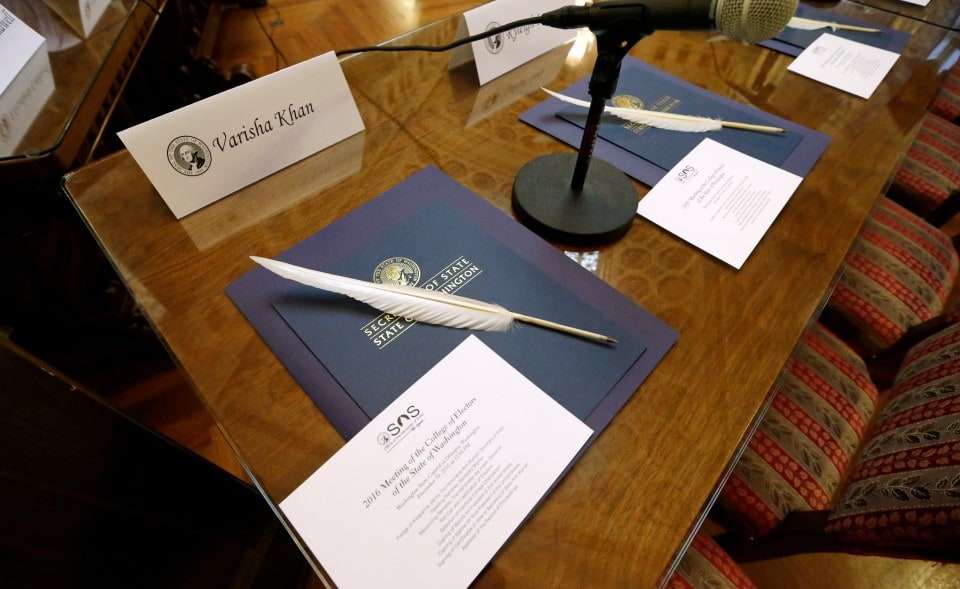The Volokh Conspiracy
Mostly law professors | Sometimes contrarian | Often libertarian | Always independent
Washington secretary of state: Possible $1,000 penalty proceeding against four 'faithless electors'

The Washington Secretary of State Office's blog reports:
Washington's Electoral College made national news Monday when four "faithless" electors declined to vote for Hillary Clinton, who carried the state 54-38 over Donald Trump.
Eight electors cast ballots for Secretary Clinton, three votes went to former Republican Secretary of State Colin Powell and one elector voted for Faith Spotted Eagle, an activist opposing the Dakota Access Pipeline.
It was the first time Washington had a "faithless" elector since Mike Padden of Spokane Valley, now a state senator. He voted for Ronald Reagan in 1976, rather than Gerald Ford, who had carried the state that year. The Legislature quickly passed a law imposing a civil penalty of up to $1,000 for voting for someone other than the nominee.
Secretary of State Kim Wyman, the state's chief elections officer, said she will enforce the statute. She is conferring with the Attorney General on a process for levying the penalty. . . .
Though I'm not an expert on the subject, I'm inclined to think that a state may not legally bind electors to do the voters' will, just as it can't legally bind senators or representatives to vote a particular way. The electors' job, according to the Constitution, is to "vote" for president, and that seems to me to mean choosing who they want to vote for, and not just following a legal command. There may be political ramifications for them if they don't vote the way their constituents want (not unlikely ramifications, given that many electors are active in politics). And I think that the modern American constitutional tradition has generally been that electors should vote the way they were elected to vote; for that reason, many electors might feel it their moral duty, even if not their legal duty, to vote that way. But I don't think a state can legally punish them for voting the way they choose.
Still, it looks like there might be a rare opportunity to see this litigated, at least up to an appellate court and maybe even up to the Supreme Court.
Thanks to Larry Seltzer for the pointer.
UPDATE: By the way, if you're interested in the constitutional question, check out Ray v. Blair (1952), which held that a state may require that electors pledge to support the candidate whom they were elected to support, though the Court didn't have occasion to decide whether it would be constitutional to impose a fine on electors who fail to support that candidate. (The Court concluded that, "even if such promises of candidates for the electoral college are legally unenforceable because violative of an assumed constitutional freedom of the elector under the Constitution to vote as he may choose in the electoral college" - a position that the court neither endorsed nor rejected - "it would not follow that the requirement of a pledge in the primary is unconstitutional.")


Show Comments (0)